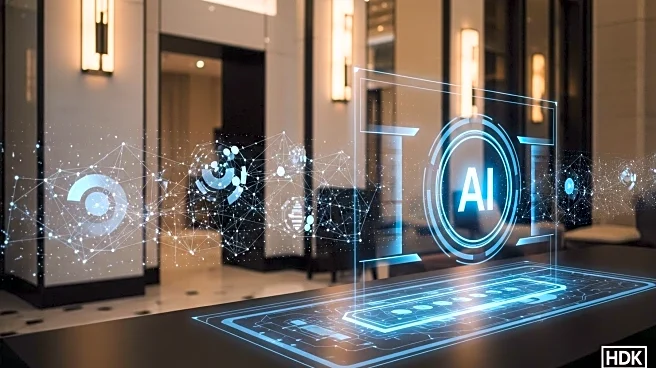What's Happening?
The hospitality industry is increasingly focusing on the integration of artificial intelligence (AI) to enhance guest experiences and operational efficiency. A critical aspect of this integration is the establishment of clean and structured datasets, which are necessary for AI systems to function effectively. The industry faces challenges related to data quality, as incomplete or inaccurate data can lead to poor AI performance and service errors. To address these issues, experts emphasize the importance of robust data connections, including integrations, interfaces, and APIs, to ensure accurate and reliable data flow. The discussion highlights the need for a balance between rapid implementation and careful data management to avoid pitfalls such as 'Garbage In, Garbage Out' (GIGO) scenarios.
Why It's Important?
The significance of clean data connections in the hospitality industry lies in their potential to unlock the full capabilities of AI, leading to improved personalization, dynamic pricing, and operational automation. By ensuring accurate data flow across systems like PMS, RMS, POS, and CRM, hotels can enhance guest satisfaction and profitability. The industry's ability to leverage AI effectively depends on overcoming data silos and establishing real-time, bi-directional data flow. This approach not only improves service delivery but also empowers hotel staff to make informed decisions quickly. As AI continues to evolve, the quality and connectivity of data will be crucial in maintaining competitive advantage and driving innovation in hospitality.
What's Next?
The next steps for the hospitality industry involve investing in flexible and open interfaces that facilitate incremental improvements in data management. Hotels are encouraged to adopt vendor-neutral systems that support continuous data flow and integration. This will enable AI to deliver on its promise of personalized service and strategic insights. Additionally, the industry must focus on training and governance to ensure that human oversight complements AI systems, preventing potential sabotage and ensuring data integrity. As AI technology advances, the industry will need to adapt its data strategies to accommodate new use cases and evolving business needs.
Beyond the Headlines
Beyond the immediate benefits of AI integration, the hospitality industry must consider the ethical and strategic implications of data management. The risk of 'Garbage In, Hallucination Out' (GIHO) scenarios, where AI systems produce misleading outputs, underscores the importance of maintaining data quality and transparency. Furthermore, the industry's reliance on AI should not overshadow the value of human expertise and judgment. By fostering a culture of collaboration and continuous improvement, hotels can harness AI as a catalyst for genuine transformation, rather than merely a technological tool.












